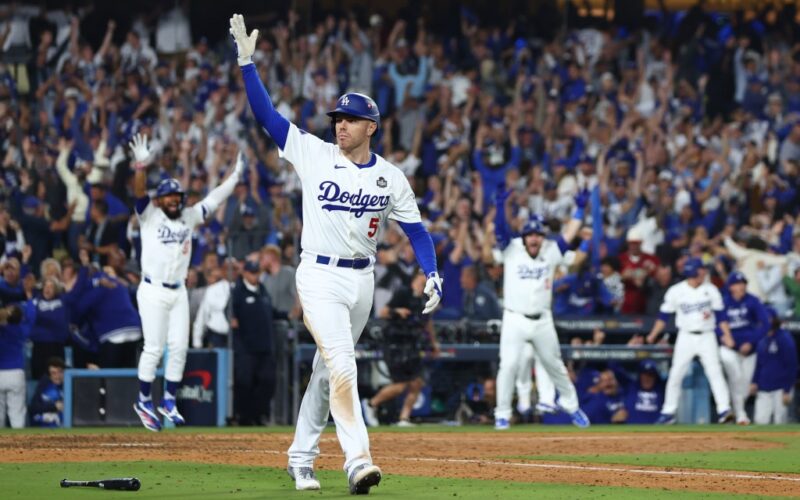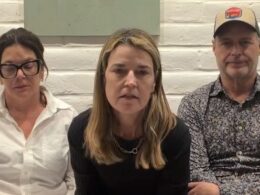The last time I saw my uncle, he was turning 91. Frail but smiling, he sat wrapped in a blanket printed with his grandchildren’s faces, his military medals gleaming above his recliner. I brought him a bright blue Brooklyn Dodgers cap, knowing it might be our last visit.
He lifted it from the bag, turned it in his hands, and smiled. When he set it on his head, the brim dipped low over his eyes.
“We’ll always root for the same team,” I said.
He nodded once, as if the words carried more meaning than I could express.
He had grown up on Long Island, traveling to Brooklyn to watch the Dodgers at Ebbets Field. Even after moving to Massachusetts, he never switched allegiances. He stayed loyal through the heartbreak of 1957, when the Dodgers left Brooklyn for Los Angeles, and through every decade since. Baseball had become his anchor, a thread that never broke.
I grew up on the other coast, in Los Angeles, where the game was constant. My father, a World War II veteran, listened to radio broadcasts as he tinkered in his garage. My mother, a former Rosie the Riveter, watched the Dodgers even though she was not a sports fan. In 1988, my father saw his last World Series when Orel Hershiser turned the city electric, briefly uniting a sprawling and divided city.
After my father died of lung cancer, our home began to fall apart. My mother’s memory faded, and my connection to his relatives dissolved. I told myself I was too busy to call, too independent to look back. Distance felt easier than return.
Then, through social media, I found them again. I started attending reunions. One summer, I went to see my uncle. His body was frail, but his humor intact and his love of the Dodgers undimmed. Sitting beside him, I realized baseball had threaded our family together through decades of silence. The game that began as my father’s refuge had become my bridge back to him.
That is what baseball does for America too. It was a salve during the Depression, when fans spent precious earnings to sit in the bleachers and feel hope. It also dares the country to examine itself, as it did in 1947 when Jackie Robinson stepped onto Ebbets Field, or after 9/11, when the first pitch at Shea Stadium carried both grief and defiance. Baseball reminds us that we are in it together.
Now, we are more divided than ever. Families are estranged, loneliness deepens, and neighbors build higher proverbial fences. Yet watching this season, fans seem more enthusiastic than ever. For a few hours, we feel good again, able to forget our differences for a little while.
Entertainment has changed. We no longer watch the same channels, read the same papers, or even know one another as we once did. But baseball still gives us a shared heartbeat, a rhythm that reminds us we are not as far apart as we think. Just as it reconnected me with my own family, it can help Americans sit side by side again. For a few innings, we are part of the same story, hoping for the same swing that brings us to victory.
The game endures because it understands failure. Even the greatest hitters strike out most of the time. Every inning offers a chance to start over, and every season a chance to rise again. Baseball, even with its faster pace, still asks us to pause, focus, and have patience, and even a little faith. In a hurried world, it quietly reminds us to breathe.
It is also one of the few places where class and background blur. City kids play in the streets, and suburban kids chase dreams under bright lights. Like the misfits in “The Bad News Bears,” anyone can belong for a while.
That day in Massachusetts, as my uncle adjusted the cap on his head, his hand trembled slightly, and for a moment, time folded.
He died a few months later. Every October, when the Dodgers take the field, I think of my uncle, my father, and all who found something steady in the game.
Baseball is more than nostalgia. It reminds us that even our greatest losses do not have to mean heartbreak forever. It helps us stay connected to our families, our history, and one another.
That is why baseball will always be America’s game. It does not move on without us. It waits for us to come home.
Vooris is a Queens-based writer, filmmaker, and New Yorker rediscovering baseball.








